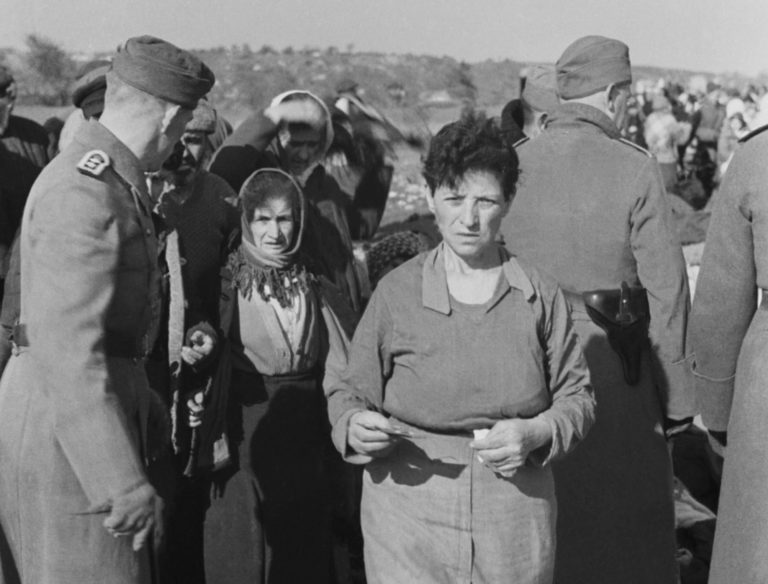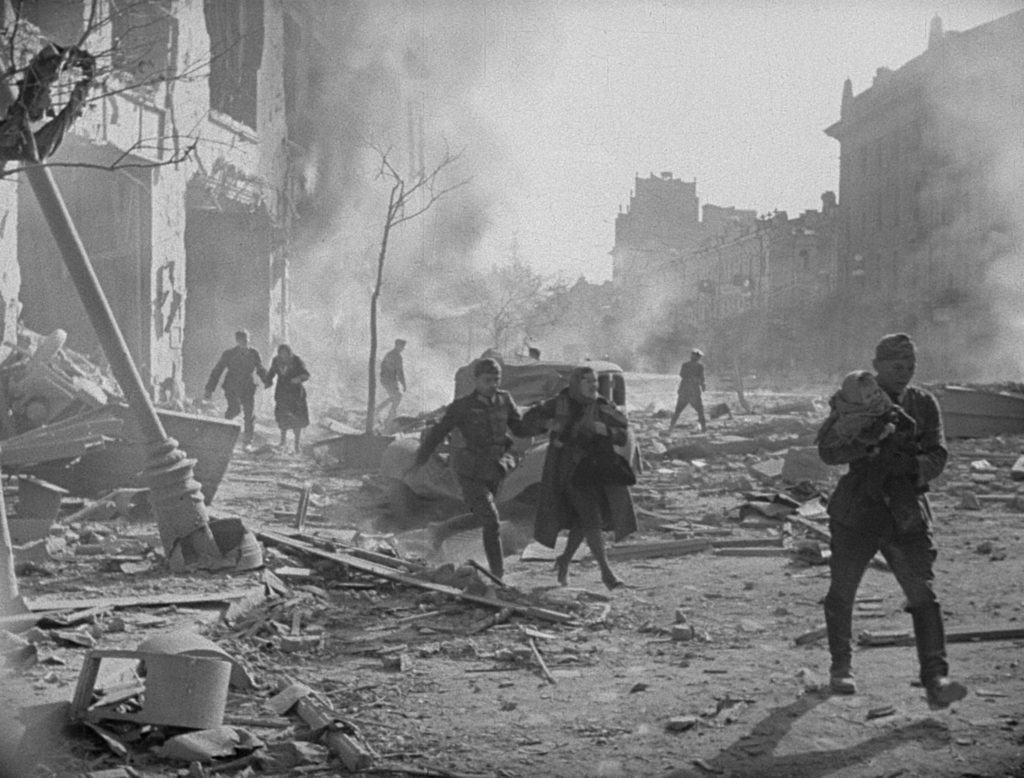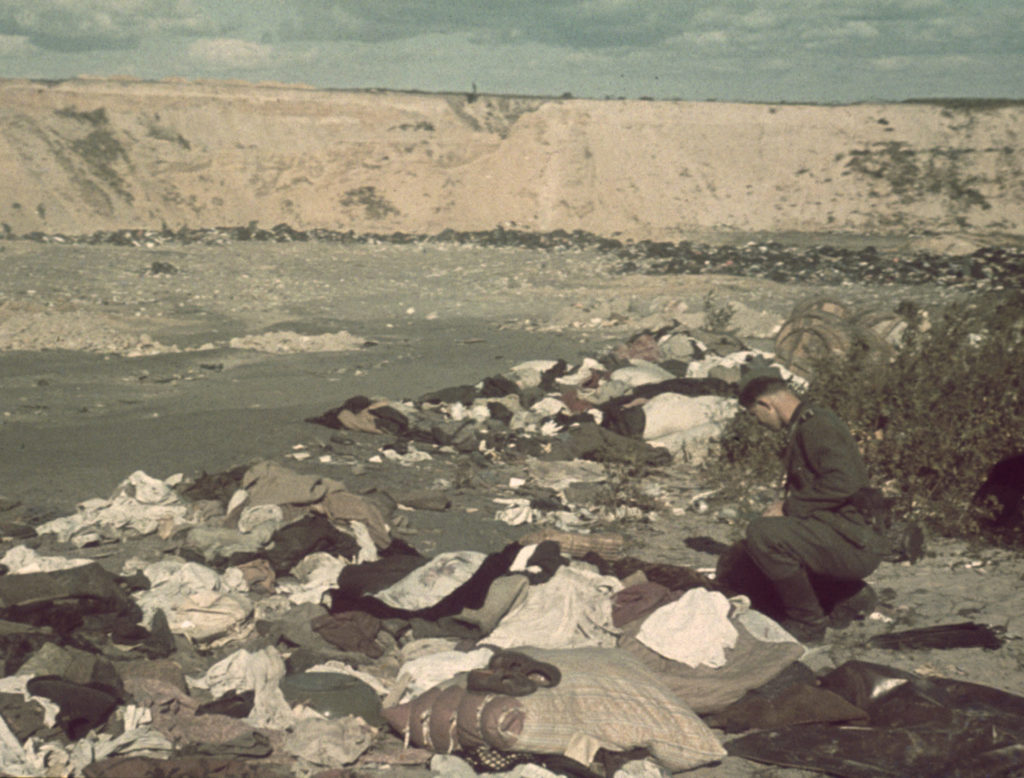
Contemplating a long elegy he wanted to write on the Holocaust, the Jewish American poet Hyam Plutzik wrote in 1960: “It is hard enough to write a requiem for one man, but six million?
… Grief ends beyond one or two or three; beyond that there are only statistics.”
I could not help commiserating with Plutzik as I watched Babi Yar. Context, Sergei Loznitsa’s eloquent and stark documentary about the Nazi massacre of more than 33,000 Ukrainian Jews during World War II. The film, which took this year’s top prize for documentary at Cannes, is especially relevant at this moment in the light of Vladimir Putin’s grotesquely fatuous declaration that the Russians were invading to assist in the “de-Nazification” of the country. If nothing else, Babi Yar. Context serves as an indictment of the recurrent futility of warfare—except for the vintage automobiles and the hoary black-and-white footage, it is nearly impossible to distinguish many of the scenes from those seen in today’s CNN reportage. The film does not take ideological sides, juxtaposing the welcome accorded to the Nazi invaders in 1941 and to the Stalinist “liberators” three years later, showing how both were accompanied by spontaneous dancing in the streets and lavish floral tributes to the tyrant du jour.

Described by the Museum of the Moving Image as a “work of fury, a redress and a wake-up call three quarters of a century in the making,”Babi Yar. Context” seamlessly moves between requiems for the one and an elegy for the millions, as if to lend credence to Hyam Plutzik’s anguished conundrum. There are countless “group” scenes: thronged crowds welcoming both Nazi and Russian victories in the streets of Kyiv; silent spectators packed in a postwar courtroom; broom-wielding shomeret women performing their tahara (Jewish ritual cleansing) by sweeping debris off dead bodies; long queues of people marching, endlessly marching (both civilian prisoners and their military overseers).
Then the director artfully cuts to scenes testifying to the horrors of war being visited on individuals one by one: a maggot-infested corpse, a terrified Nazi officer before a postwar tribunal, a shaken woman testifying to her near-death experience in the charnel pits at Babi Yar.
Constructed entirely from archival and amateur footage of the Nazi occupation itself, much of it shot by German soldiers, the documentary is almost entirely silent, a cinematic technique that only serves to underscore the unutterable impact of a conflict that muted so very many of the Jewish voices of Ukraine. The sounds we do hear have almost become characters in themselves: the ominous bursts of artillery fire and flamethrowers; the mournful testimony of barking dogs, neighing horses and other animals left behind in the carnage. Most of the human speech is heard in the final moments of the film, when survivors tell a court of inquiry about their harrowing near-brushes with death.

The film’s closing scene, of a group of Nazis—their names announced on loudspeakers–being hanged in a public execution in Kyiv, affirms the notion that, ultimately, individuals were morally responsible for the deaths at Babi Yar, and by extension, for the murders of all who perished under the ruthless Wehrmacht.
What is particularly impressive about Babi Yar. Context is the way its narrative arc is crafted by an accumulative process. For about the first twenty minutes or so, I suspect that a viewer’s eyes may begin to glaze over at watching scene after scene replete with dust, smoke, and flame. Patience has its rewards, for a critical mass of these images will quickly transform the repetitive silent tableaux into a mesmerizing story of human survival in the face of overwhelming evil.
While this film is not for the faint-hearted, it will inevitably serve as a rallying cry for the stalwart who, like Plutzik, believe in human endurance even when “the silence is august and terrible.
”

